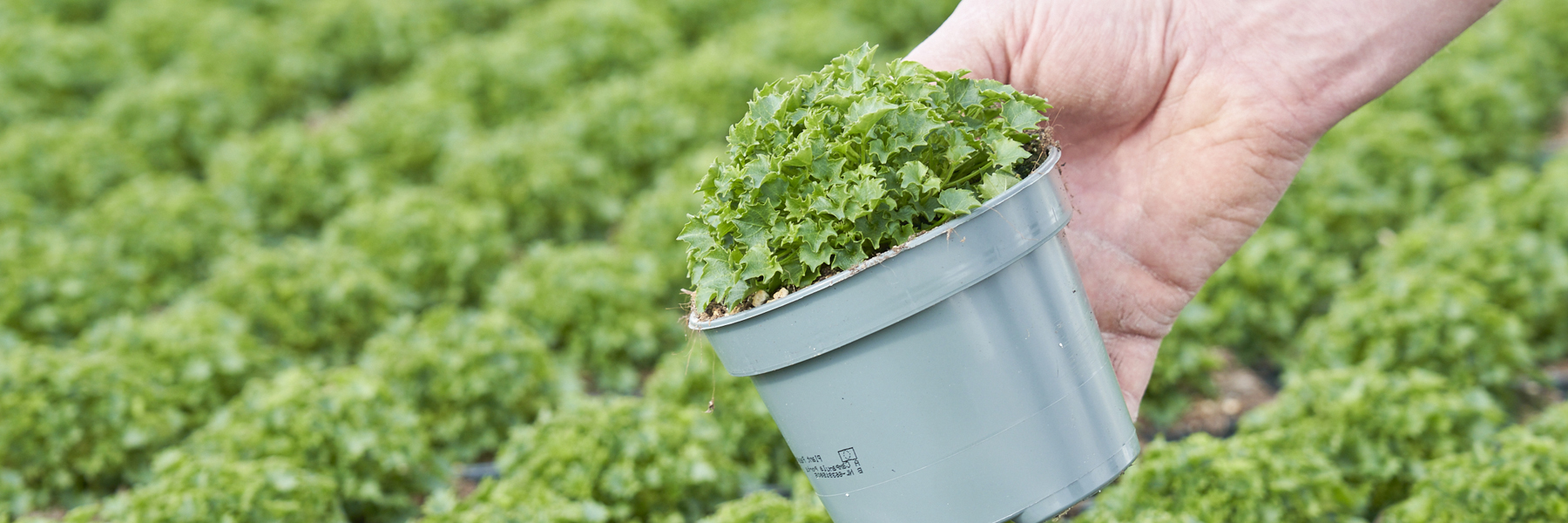
Sustainability is an ongoing process at Addenda®
At Addenda®, we are continuously working on, and striving to continuously reduce and optimise, our environmental impact. The main sustainability themes that we work on together are our use of energy, water, resources and materials.
Sustainability central
Plant health
It’s important to us that you can buy a strong and healthy plant. To make our plants strong and healthy, we sometimes need to protect crops. At Addenda® we only use agents to control plant pests such as weeds, fungi and bacteria. The agents used are approved by Het College voor de toelating van gewasbeschermingsmiddelen en biociden (Dutch Board for the Authorisation of Plant Protection Products and Biocides, CTGB). The CTGB assess these agents for human, animal and environmental safety. In addition, Addenda® has taken steps towards sustainability in recent years by striving to use as many natural and organic resources as possible in our production chain.
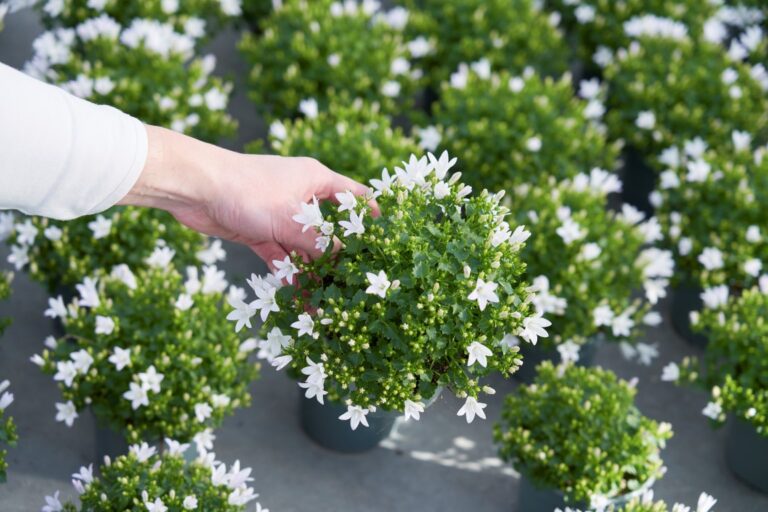
Green energy

Campanula and some of our Hebe are grown in greenhouses. Heating greenhouses requires energy. Our growers use green energy as much as possible. Green energy? This is energy that our growers generate in-house through solar panels, CHP (combined heat and power) plants, a connection to a geothermal source or a combination of these.
What is a CHP plant?
A ‘CHP’ produces electricity, but it also creates heat in the process, you could see it as a kind of miniature power plant. However, while ordinary power plants usually leave their residual heat unused, a CHP puts that heat to use to heat greenhouses, homes or other buildings. Using that residual heat for heating and hot water makes CHPs highly efficient. Total CO2 emissions (from gas and electricity combined) will subsequently be much lower.
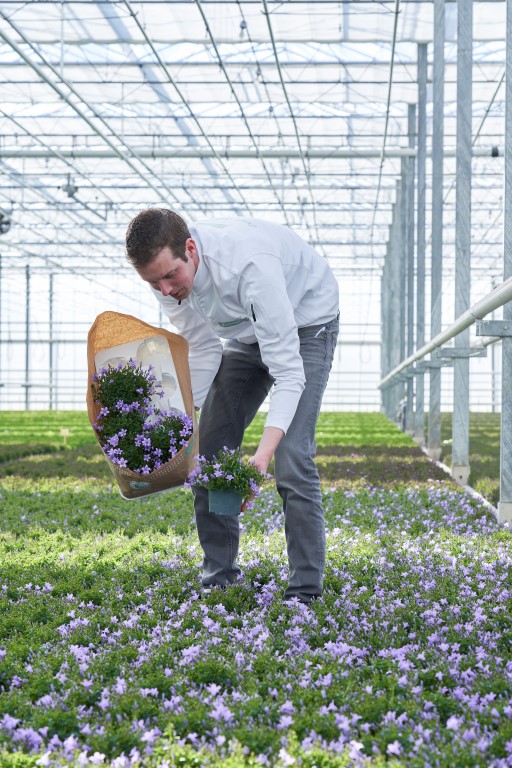
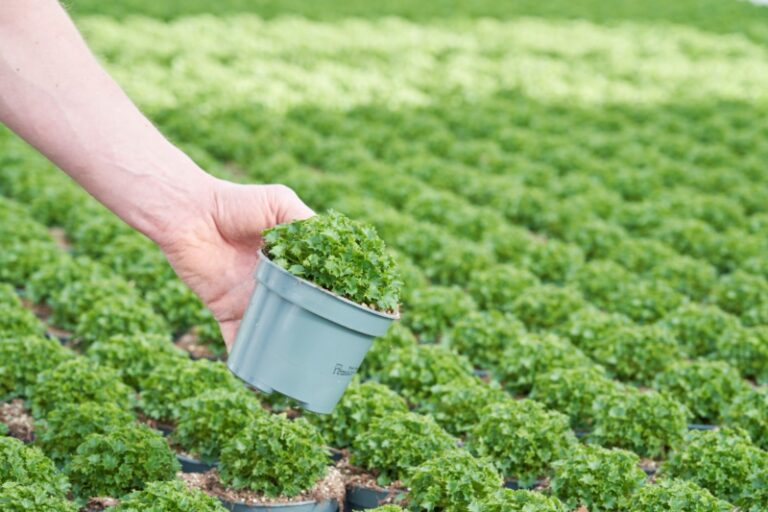
What is geothermal heat?
One of Addenda®’s growers is connected to a geothermal heat source. Heat from under the ground is a sustainable form of energy. For geothermal energy, you need to drill hundreds of metres to a few kilometres deep. Hot water is pumped up from those depths. This heat is used immediately for heating or generating electricity for greenhouses, businesses and homes in a given area. In the near future, several Addenda® growers will be given the opportunity to connect to a heat network, which will result in a substantially reduced CO2 footprint.
Material (re)use

The production, transportation and sale of our plants require materials, and we choose a sustainable option! We strive for optimal (re)use of materials.
- All Campanula and Hebe labels we use are produced from 100% biodegradable material.
- You can do your bit by disposing of the labels in your paper container after use for optimal recycling.
- In 2023 Addenda® plans to switch to a new and more sustainable plant label, saving 40% in materials compared with the previous label. Read more > reference to news release
- Our seed pots are made of +99% recycled plastic (PP) and can be recycled again after use.
- You can do your bit by disposing of the seed pots in a PBD container, for optimal recycling.
- Our growers strive to use multi-use transport trays to transport the plants wherever possible. Trays are registered and processed for returns in a pool system.
- The tray collars that protect the plants during transport are made of FSC-certified paper.
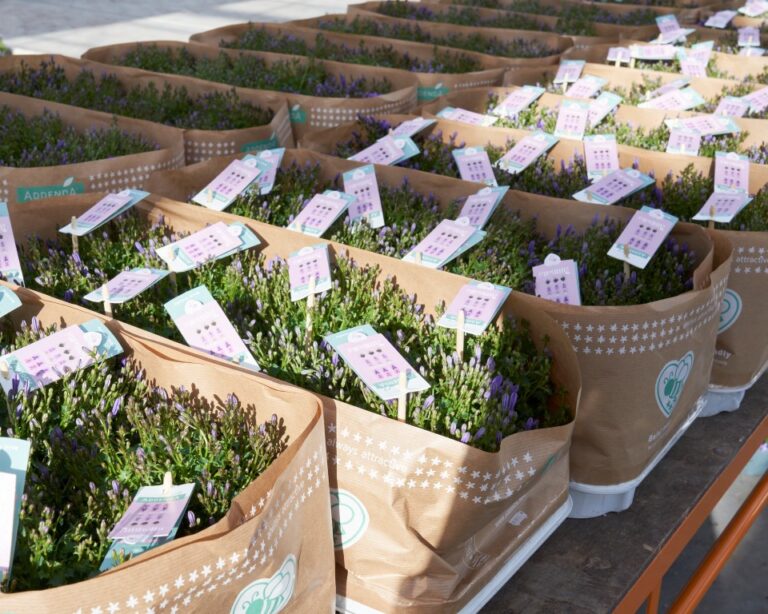
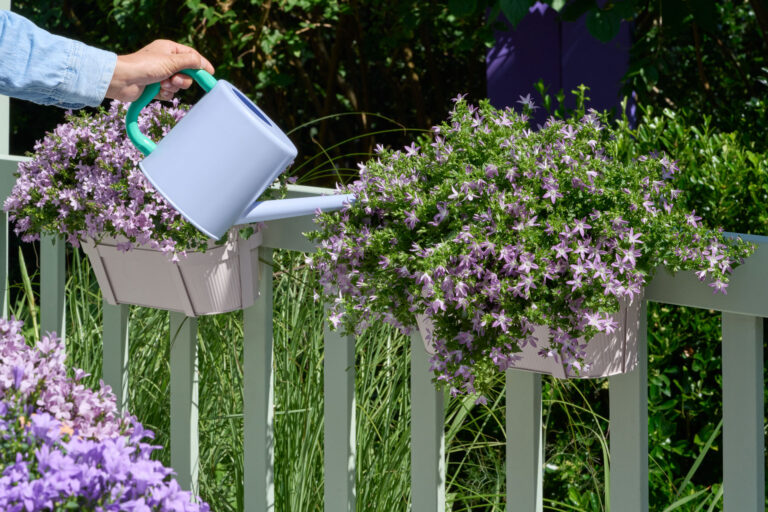
Water
The production of our plants requires water. Addenda® growers collect rainwater and use it to water the plants in the greenhouse and in the open field. The water that the plants do not absorb is not wasted. It is cleaned and purified through a closed water system to be reused again and again. Our growers only use clean tap water for employee facilities!
Our footprint
All the progress we are making in the area of sustainability is significantly reducing our carbon footprint. Our growers aim to keep our footprint as limited as possible, to reduce environmental impact. Every 5 years, the environmental impact at Addenda® is mapped by Greenhouse marketeers, an external agency. Once we have gained insights about our current impact, we can work with growers to make more progress.

